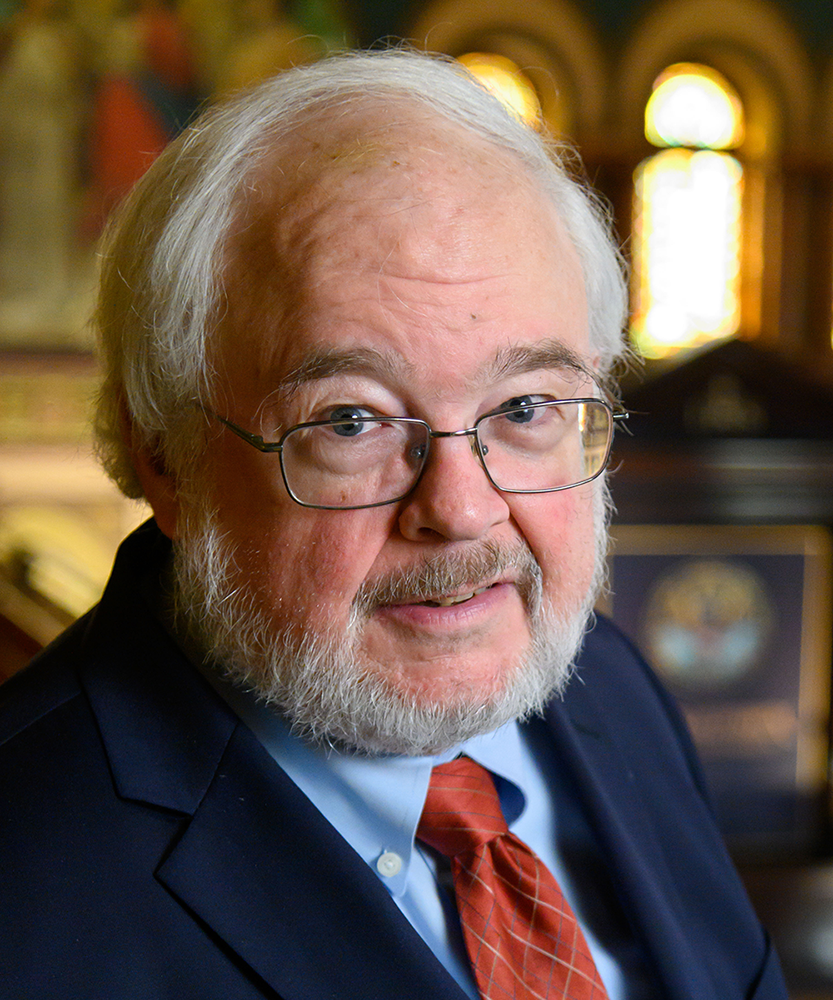Panelists praised attorneys of survivors Monday for holding the Catholic Church accountable for the clerical abuse crisis, while also acknowledging the role of lawyers in the Church’s efforts to cover up sexual misconduct.
Lawyers have played a critical role in confronting and publicizing the clergy sexual abuse crisis, according to John Carr, director of Georgetown’s Initiative on Catholic Social Thought and Public Life, who moderated the event.
“It would be fair to say without the action of lawyers, this crisis would still be hidden in many ways,” Carr said. “It was plaintiffs attorneys who sued the church and took on this crisis, and we owe them a lot.”
Plaintiffs, lawyers and attorneys general have spearheaded investigations into clergy misconduct across the country for years. The most recent, prominent example was a sweeping, two-year investigation conducted by the Pennsylvania Attorney General, who in August 2018 identified more than 300 priests across Pennsylvania’s six dioceses credibly accused of sexually assaulting thousands of minors.
In some cases, however, attorneys have also played an active role in silencing reports of abuse and preventing reform in the Church, according to Carr.
“There were attorneys who advised the church, some of whom said, ‘Don’t worry we’ll handle this, we can make this go away,” Carr said. “Don’t meet with victims, don’t apologize, don’t acknowledge.’ Other diocesan attorneys said, ‘Be a pastor. Do what’s right and we’ll handle it the rest of it.’”
The April 9 event, titled “How Law and Lawyers Help Hide and Uncover the Clergy Sexual Abuse Crisis,” was part of a month-long series of dialogues hosted by the Initiative on Catholic Social Thought and Public Life on the clerical sexual abuse crisis.
Carr moderated a four-person panel including Margaret Graf, the general legal counsel of the Archdiocese of Los Angeles since 2003; Tom Johnson, public advocate for sexual abuse victims in the St. Paul-Minneapolis archdiocese; Peter Steinfels, a former religion reporter for the New York Times; and Barbara Thorp, former director of the Office for Pastoral Support and Child Protection of the Archdiocese of Boston.
For decades, attorneys for survivors and the Church have played a large role in perpetuating the culture of secrecy surrounding sexual abuse, according to Johnson.

“Statutes that would require you report that abuse to law enforcement and take other actions are pretty much ignored,” Johnson said.
In January, the Council of the District of Columbia proposed a bill, currently under review, that would legally mandate pastors, rabbis and other clergy to report instances of child abuse or neglect. Under current D.C. law, teachers, school officials, medical professionals and daycare workers are mandated reporters, who are required to report incidents of abuse to the Metropolitan Police Department or to child protective services.
The Catholic Church used confidentiality agreements signed by victims pledging to remain in exchange for a small payoff to maintain this culture of secrecy, according to Johnson.
“Their silence was bought, and in the course of doing that, they actually became a player in a conspiracy to keep it silent,” Johnson said. “That damage to the victims was very significant.”
While civil law has provided an avenue for survivors to access support resources, canon law has yet to recognize to the same extent its responsibility to survivors of clerical abuse, according to Thorp.
“The canon law side of this is lagging far behind in terms of seeing itself as another opportunity to bring real healing and real confidence that the Church understands the depth of the harm and damage that’s done,” Thorp said. “The cases that have gone on appeal to the Vatican, there is no intention of resolving them.”
Collaboration between lawyers, clergy and survivors is imperative to finding legal solutions to the crisis, according to Graf.
“One of the big takeaways as we think about these issues and we talk today: we need to gather data, we need to consider best practices, but we need to look at it through the eyes of victim-survivors, not just through the eyes of the institutional church,” Graf said.
Lawyers for survivors have misused their influence by telling a story of the Church’s sexual abuse crisis that is at odds with reality, according to Steinfels.
“Lawyers have also helped define and, I would argue, distort our understanding of the abuse scandal. We have a dominant storyline very much shaped by lawsuits, criminal cases, depositions and the media spiraling of lawyers,” Steinfels said




















